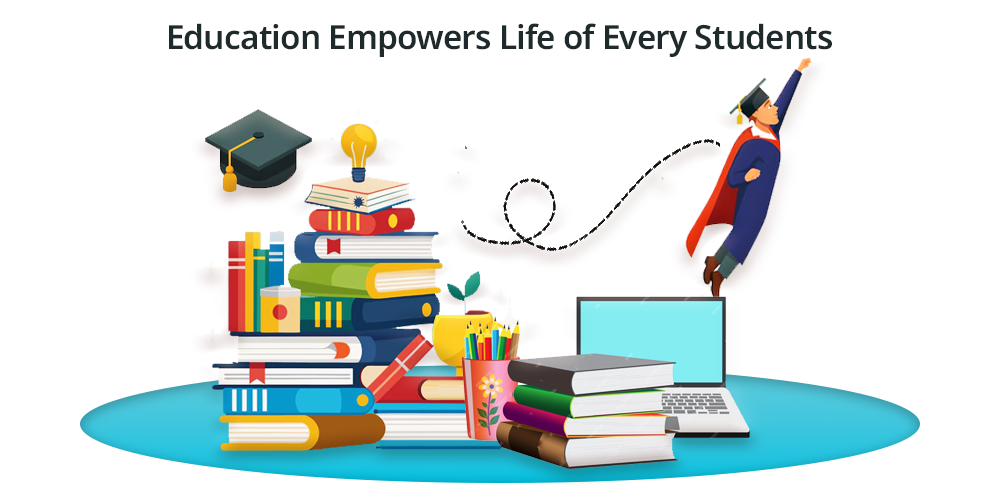Education is one of the most powerful tools we have in shaping the future of individuals, communities, and even nations. It is not merely about learning facts and figures; it is about equipping people with the skills, knowledge, and mindset they need to navigate life’s challenges and opportunities. In an increasingly complex and interconnected world, learning serves as the foundation for personal and societal growth. Whether it’s formal schooling, vocational training, or self-directed learning, education is the key to unlocking potential and driving progress.
The Importance of Education
At its core, education empowers individuals to think critically, solve problems, and make informed decisions. It encourages curiosity and the desire to understand the world around us, fostering creativity and innovation. More importantly, education provides the tools to break the cycle of poverty. Research consistently shows that individuals with higher levels of education are more likely to enjoy better health, earn higher wages, and experience greater life satisfaction.
For societies, learning is the catalyst for social and economic development. Countries with a well-educated population tend to experience higher rates of productivity, economic growth, and technological advancement. A skilled workforce is essential for creating jobs, fostering entrepreneurship, and building strong economies. Furthermore, education promotes social cohesion by teaching values such as respect, tolerance, and responsibility.
The Evolution of Education
In the past, learning was largely confined to traditional classrooms, with textbooks and lectures being the primary methods of instruction. However, the landscape of education has undergone a massive transformation in recent years. The advent of technology has revolutionized how we learn, offering new ways to access information, communicate, and collaborate. Online courses, digital textbooks, and interactive learning platforms have made education more accessible than ever before.
This shift toward digital learning has also highlighted the importance of lifelong learning. In a rapidly changing world, the skills that were relevant yesterday may not be sufficient tomorrow. As automation and artificial intelligence continue to reshape industries, there is an increasing demand for individuals to acquire new skills throughout their careers. This has led to the rise of online platforms like Coursera, Udemy, and LinkedIn Learning, where people can pursue courses and certifications in everything from coding to business management.
The Role of Teachers and Educators
While technology has certainly transformed the educational landscape, the role of teachers remains as important as ever. Educators are not just conveyors of knowledge; they are mentors, guides, and inspirations for their students. A great teacher can ignite a passion for learning and motivate students to reach their full potential. In many ways, educators are the unsung heroes of society, shaping the next generation of leaders, thinkers, and innovators.
However, the challenges faced by educators today cannot be ignored. Teachers are often overburdened with administrative tasks, underpaid, and sometimes lack the resources they need to effectively teach. Despite these challenges, many educators continue to go above and beyond for their students, demonstrating incredible resilience and commitment. Supporting teachers through better training, fair compensation, and a more supportive work environment is crucial for ensuring the continued success of education systems worldwide.
The Future of Education
As we look toward the future, it is clear that learning will continue to evolve. The global shift toward digital learning is likely to expand, with more students and professionals accessing education through online platforms. However, this must be balanced with efforts to ensure that everyone, regardless of location or socioeconomic status, has access to quality education. Bridging the digital divide is essential for creating an equitable educational environment.
Furthermore, there is growing recognition that learning must focus not only on academic achievement but also on developing well-rounded individuals. Social-emotional learning, critical thinking, and ethical reasoning are becoming increasingly important components of modern curricula. As the world faces complex global challenges—such as climate change, inequality, and political instability—education must foster the values and skills needed to address these issues.
Conclusion
learning is more than just a pathway to success—it is a fundamental human right and the cornerstone of progress. By investing in education, we invest in a brighter future for individuals and society as a whole. Whether through formal schooling, vocational training, or self-directed learning, learning equips people with the tools they need to shape their destinies. As we move forward, we must continue to adapt and innovate, ensuring that learning remains accessible, relevant, and transformative for all.
